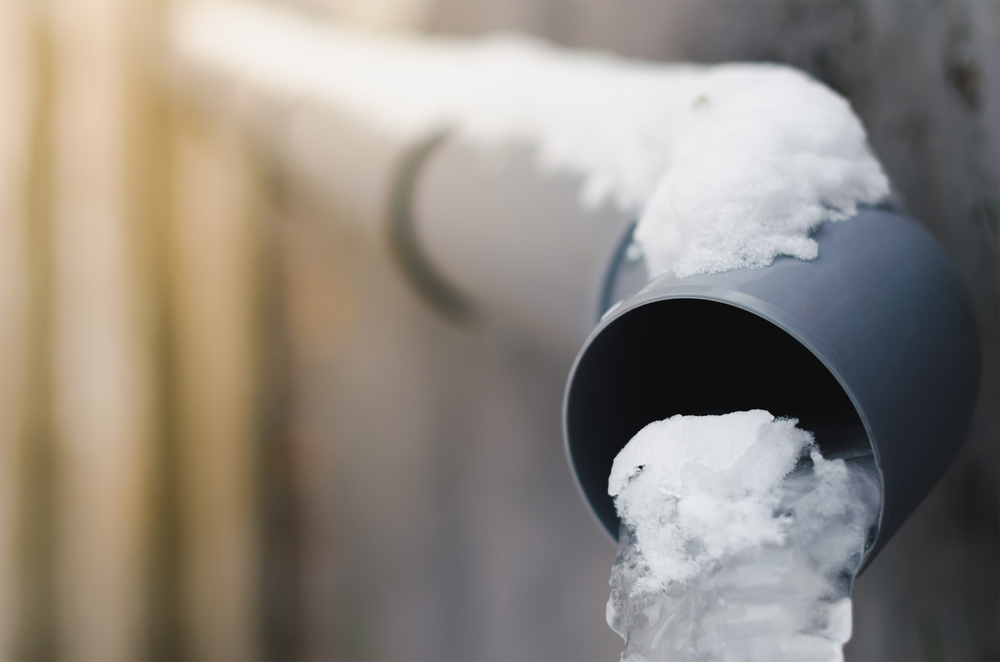The content on the next paragraphs about 6 Ways to Prevent Frozen Pipes is pretty much motivating. You should take a look.

Winter can damage your plumbing, especially by freezing pipes. Here's how to stop it from taking place and what to do if it does.
Intro
As temperature levels decrease, the threat of frozen pipelines increases, potentially resulting in costly repair work and water damage. Understanding how to prevent icy pipelines is important for home owners in cold climates.
Prevention Tips
Shielding prone pipes
Cover pipes in insulation sleeves or make use of heat tape to shield them from freezing temperatures. Concentrate on pipes in unheated or outside locations of the home.
Home heating techniques
Maintain interior areas appropriately heated, especially areas with pipes. Open closet doors to permit warm air to flow around pipes under sinks.
How to recognize icy pipelines
Search for lowered water flow from faucets, uncommon smells or noises from pipelines, and visible frost on exposed pipes.
Long-Term Solutions
Architectural modifications
Think about rerouting pipelines away from outside walls or unheated locations. Add additional insulation to attics, cellars, and crawl spaces.
Upgrading insulation
Buy premium insulation for pipes, attics, and walls. Appropriate insulation assists preserve constant temperature levels and reduces the threat of icy pipelines.
Securing Outside Plumbing
Yard tubes and outside faucets
Disconnect and drain pipes garden hoses prior to wintertime. Install frost-proof spigots or cover outside taps with protected caps.
Understanding Icy Pipelines
What triggers pipelines to freeze?
Pipelines ice up when exposed to temperatures listed below 32 ° F (0 ° C) for prolonged periods. As water inside the pipes freezes, it expands, taxing the pipe walls and possibly creating them to break.
Dangers and problems
Frozen pipelines can lead to water system disturbances, property damages, and expensive repair services. Ruptured pipelines can flooding homes and cause considerable architectural damages.
Signs of Frozen Piping
Identifying frozen pipelines early can avoid them from bursting.
What to Do If Your Pipelines Freeze
Immediate actions to take
If you suspect icy pipes, maintain faucets open to soothe pressure as the ice thaws. Utilize a hairdryer or towels soaked in warm water to thaw pipes gradually.
Final thought
Avoiding icy pipes calls for positive measures and fast responses. By recognizing the causes, indications, and safety nets, property owners can shield their plumbing during winter.
Helpful Tips to Prevent Frozen Pipes this Winter
UNDERSTANDING THE BASICS: WHY PIPES FREEZE AND WHY IT’S A PROBLEM
Water freezing inside pipes is common during the winter months, but understanding why pipes freeze, and the potential problems it can cause is crucial in preventing such incidents. This section will delve into the basics of why pipes freeze and the associated problems that may arise.
THE SCIENCE BEHIND FROZEN PIPES
When water reaches freezing temperatures, it undergoes a physical transformation and solidifies into ice. This expansion of water as it freezes is the primary reason pipes can burst. As the water inside the pipe freezes, it expands, creating immense pressure on the walls. If the pressure becomes too great, the pipe can crack or rupture, leading to leaks and water damage.
FACTORS THAT CONTRIBUTE TO PIPE FREEZING
Low Temperatures: Extremely cold weather, especially below freezing, increases the risk of pipes freezing. Uninsulated or Poorly Insulated Pipes: Pipes located in unheated areas, such as basements, crawl spaces, or attics, are more prone to freezing. Insufficient insulation or lack of insulation altogether exacerbates the problem. Exterior Wall Exposure: Pipes running along exterior walls are susceptible to freezing as they encounter colder temperatures outside. Lack of Heating or Temperature Regulation: Inadequate heating or inconsistent temperature control in your home can contribute to frozen pipes. PROBLEMS CAUSED BY FROZEN PIPES
- Pipe Bursting: As mentioned earlier, the expansion of water as it freezes can cause pipes to burst, resulting in significant water damage.
- Water Damage: When pipes burst, it can lead to flooding and water damage to your property, including walls, ceilings, flooring, and personal belongings.
- Structural Damage: Prolonged exposure to water from burst pipes can compromise the structural integrity of your home, leading to costly repairs.
- Mold and Mildew Growth: Excess moisture from water damage can create a favorable environment for mold and mildew growth, posing health risks to occupants.
- Disrupted Water Supply: Frozen pipes can also result in a complete or partial loss of water supply until the issue is resolved.
WHY CERTAIN PIPES ARE MORE PRONE TO FREEZING
- Location: Pipes located in unheated or poorly insulated areas, such as basements, crawl spaces, attics, or exterior walls, are at higher risk of freezing.
- Exterior Pipes: Outdoor pipes, such as those used for irrigation or exposed plumbing, are particularly vulnerable to freezing as they are directly exposed to the elements.
- Supply Lines: Pipes that carry water from the main water supply into your home, including the main water line, are critical to protect as freezing in these lines can affect your entire plumbing system.
- Underground Pipes: Pipes buried underground, such as those connected to sprinkler systems or outdoor faucets, can be susceptible to freezing if not properly insulated.
https://busybusy.com/blog/helpful-tips-to-prevent-frozen-pipes-this-winter/

As an enthusiastic person who reads about 6 Ways to Prevent Frozen Pipes, I assumed sharing that editorial was a smart idea. You should take the time to share this blog post if you enjoyed reading it. Many thanks for being here. Please pay a visit to our site back soon.
Book Your Appointment